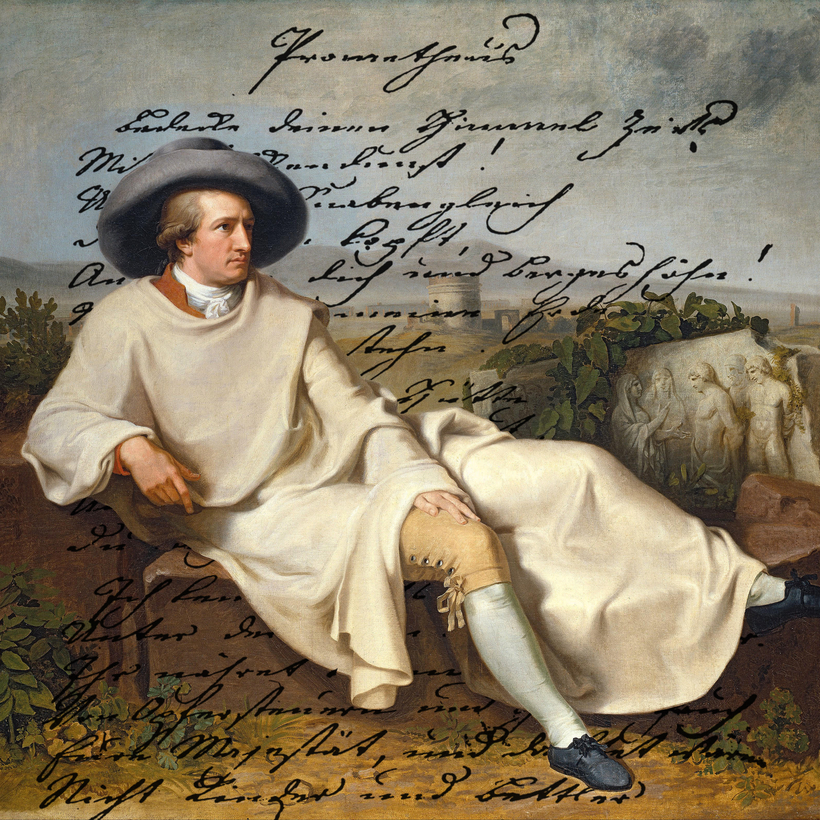If you’re looking for something light and escapist to keep that summer feeling from slipping away, a book like On Gin Lane or The Hotel Nantucket that will place you in high-end beachy enclaves, look elsewhere. The book I am proposing to tell you about is a protracted dip into heavy waters, where the myriad historical details and internecine intellectual wrangles are as thick as pebbles on the shore.
Germany at the turn of the 18th century was a nation of “fanatical readers,” Andrea Wulf writes in Magnificent Rebels: The First Romantics and the Invention of the Self. “Craftsmen, maids and bakers were reading just as avidly as university professors and aristocrats.” The book is set just over one decade (1794–1804) when the small, medieval German university town of Jena (which housed “seven well-stocked bookstores” as well as a lending library) became the “Kingdom of Philosophy.”
Wulf recounts the little-known story of a furiously erudite, endlessly fractious, and compulsively gossipy group she calls the “Jena Set”—also known as the “Young Romantics.” Among these mostly 20- and 30-year-olds were the philosophers Johann Gottlieb Fichte and Georg Wilhelm Friedrich Hegel (whose very names suggest a Teutonic heaviness of spirit); Johann Wolfgang von Goethe, who lived in nearby Weimar and “was something of a stern and benevolent godfather”; Novalis (the pen name of poet Friedrich von Hardenberg); the playwright and poet Friedrich Schiller, whose play The Robbers had made him famous at the age of 22; and the brothers August Wilhelm and Friedrich Schlegel, both writers and literary critics.
The cohort also included a feisty, thrice-married woman, Caroline Böhmer-Schlegel-Schelling, who had spent six months in prison in Königstein in 1793 while pregnant, together with her seven-year-old daughter, Auguste, on charges of being a French sympathizer. Blessed with large, deep-blue eyes, an elegant fashion sense, and a dazzling intelligence, she was the set’s presiding muse. (“One look is all it takes,” Friedrich Schlegel said of her.) Caroline’s literary talents easily equaled those of the men around her; she and her husband August Wilhelm Schlegel were the first translators of Shakespeare into German, and their version is still in use today.
Another woman, Dorothea Veit-Schlegel (née Brendel Mendelssohn), the daughter of the revered Moses Mendelssohn, who was known as the “Jewish Socrates,” caused an uproar in the Berlin salons when she divorced her husband of 16 years in order to be with Friedrich Schlegel. Dorothea eventually converted to Catholicism and was also a gifted writer, translator, and “indispensable collaborator,” but never quite found her place under the Jena sun and became increasingly paranoid as the group began to split apart.
Spinoza and Schopenhauer lurk in the background. Napoleon and the famed saloniste Madame de Staël put in appearances. Jean-Jacques Rousseau gets only a passing mention, which is surprising, given his contribution to the notion of a free-ranging education for children. The polymath geographer Alexander von Humboldt, about whom the author wrote two earlier books, floats on- and offstage. William Wordsworth and Samuel Taylor Coleridge pick up the banner of the group’s ideas. (Coleridge learned German in order to read their works.)
Wulf’s central thesis is that, in the wake of the Enlightenment and the French Revolution, the Jena Set “changed the way we think about the world by placing the self at the centre of everything.” Where the philosopher John Locke had earlier posited the mind as “a blank slate” and Immanuel Kant held that the external world was unknowable by means of human perception, Fichte triumphantly interposed his notion of the world as divided into the “Ich” (the self) and the “non-Ich” (everything else). Students at the University of Jena, who had to pay per lecture, flocked by the hundreds to hear Fichte elaborate on the implications of this newly unfettered and responsive self.
Although this may sound like a tempest in a teapot to contemporary readers, who have always taken the primacy of the self for granted, at that particular moment in history Fichte’s focus on the individual was a radical reconfiguring of perspective. “At a time when Germany’s rulers expected and demanded the complete subordination of their subjects,” Wulf declares, “Fichte’s new ideas of an Ich as the first principle of everything were as revolutionary as any of the political changes witnessed in France.”
The French Revolution, with its anti-feudalism and restriction of the power of the Church and of the monarchy, had paved the way for an innovative understanding of the notion of human agency. “My system is, from beginning to end, an analysis of the concept of freedom,” Fichte declared. Modesty does not appear to have been this “famously tetchy” philosopher’s strong suit. “My celebrity,” he remarked, “was really much greater than I imagined.”
William Wordsworth and Samuel Taylor Coleridge pick up the banner of the group’s ideas. (Coleridge learned German in order to read their works.)
Wulf’s subjects ventured into prose that prefigured modern literary tropes. Both Friedrich Schlegel and Novalis thought of their natures as expressed in sentence fragments, a technique beloved of later writers such as W. G. Sebald and Elizabeth Hardwick. (Goethe referred to fragments as a “marvellous wasps’ nest.”) Novalis, like Coleridge after him, wrote poems that embraced drugs and sexual desire. Schlegel “elevated the ‘poetry of the frenzied’ over the ‘poetry of the sober.’”
If in some ways this clique seems light-years away from our own atomized lowbrow culture in their relentless seeking after dense intellectual postulates and an abiding sense of philosophical truth, in other ways they appear to have the same feet of clay that we in the current day are hobbled with. The set dabbled extensively in extramarital liaisons (producing several illegitimate children in the process) and were given to envious standoffs and implacable hostilities between one another even as they coined the term “symphilosophy,” to demonstrate their shared approach to the act of thinking. Their legacy is fruitful and expansive, but it also has a shadowy aspect in its fetishistic embrace of the individual, with its attendant risks of elevating selfishness and validating narcissism.
Andrea Wulf’s breathless, sprawling narrative vividly illustrates what it was like to live in Jena at a time when Goethe wrote in the town’s Old Castle, “propped up on pillows and wrapped in blankets to keep out the cold, dictating to his assistant”; Fichte had his hair powdered before venturing out to dazzle his students; and the level of conversation was exalted, with not a self-appointed pundit in sight. The book could have used some judicious editing—Wulf seems bent on using every morsel of her research (the notes and bibliography come to more than 100 pages), and the prose sometimes becomes cluttered—but Magnificent Rebels is, overall, a vaulting achievement.

Daphne Merkin is the author of numerous books, including the memoir This Close to Happy: A Reckoning with Depression and the novels Enchantment and 22 Minutes of Unconditional Love


